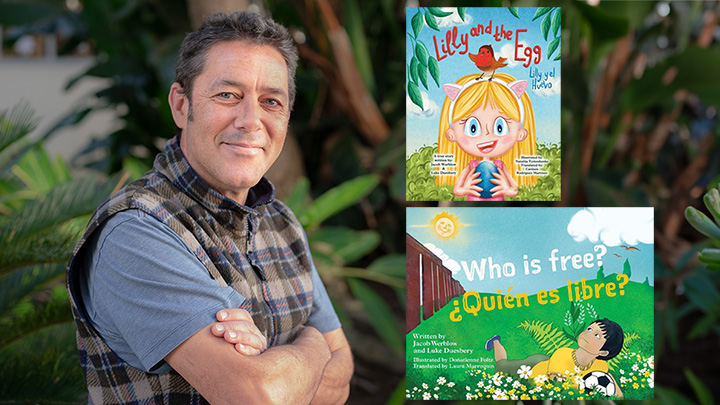Teaching young people to be ‘constantly questioning’

It all started with an impromptu hike.
It was during the American Educational Research Association (AERA) 2022 Annual Meeting, which took place in San Diego, and Luke Duesbery was hosting friends and colleagues from around the country. In between conference sessions, the professor in San Diego State’s School of Teacher Education suggested that the group of academics go for a trek at Border Field State Park, which hugs the U.S.-Mexico border where it meets the Pacific Ocean.
"We walk up the hill and these brilliant colleagues are all like, ‘Wow! I never imagined the border looked like this — this wall is huge,’ recalls Duesbery. “We watched as a couple of hawks flew over the wall and then we walked down to the beach. Over on the (Mexico) side of the border, there were hundreds of people on the beach, and on our side of the border, there was nobody. You can't even get close to the border on our side.
“And so, it struck us.”
That moment of contemplation has blossomed into the Early Readers are Critical Thinkers children’s book series. Supported by SDSU’s Center for Teaching Critical Thinking and Creativity, which Duesbery directs, the series aims to teach kids to ask questions about the world around them.
The series’ first two books have been published, both co-authored by Duesbery and Jacob Werblow, professor of curriculum and instruction at Central Connecticut State University — and a member of the hiking party that day.
The first is “Who is Free?” a story exploring the nature of political boundaries that focuses on the same stretch of the U.S.-Mexico border wall that inspired the series.
The second is “Lilly and the Egg,” which tells the story of a young girl finding a robin’s egg in a field and returning it to the mother bird’s nest so it can hatch.
Both are translated into Spanish and end with a critical thinking section with facts and questions that parents or educators can use to encourage discussion with children.
"Those rudimentary skills of being able to look at facts, ask questions, come up with answers, but understand that there are different perspectives — those are developed at a young age,” Duesbery explains.
Duesbery has big plans for continuing the series, including expanding on the border theme — including borders within borders. He recently traveled to far Northern California to meet with leaders of the Yurok tribe to gather perspectives for a story about American Indian reservations. He intends to find a Yurok translator and illustrator to contribute to the book.
Future topics of exploration include the Berlin Wall and stories centered on the Dominican Republic, Venezuela and Guyana.
“It can be difficult, I think, for adults to have children question them,” Duesbery said. “But I think that while it might be difficult — especially when you're teaching sixth, seventh and eighth grade — having young people questioning authority and questioning what people think are facts is necessary.
“That's how we grow into people who are constantly questioning."

